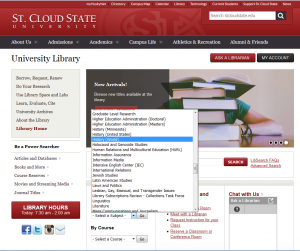Posts Tagged ‘Confucius Institute’
WeChat and blog combining social media
Parallel running of two social media from different countries: WeChat and blog for international students
Our work with Chinese students from the Confucius Institute (CI) at St. Cloud State University (SCSU) shed light on an interesting development: in the last several years, the popular Chinese social media platform WeChat dominates the social life of Chinese people, Chinese students in particular.
WeChat, like WhatsApp in Europe, Vkontakte in Russia, Weibo in China, or before its 2014 Orkut in Brazil (https://blog.stcloudstate.edu/ims/2014/07/05/social-media-orkut-the-and-of-an-era/ seeks to create its own users’ momentum, and no differently from Facebook, expand that membership momentum from the host country to a global dominance (https://blog.stcloudstate.edu/ims/2017/08/06/psychology-of-social-networks/; more citation comes here).
Based on the WeChat affinity of the Chinese students at the SCSU CI program, the program organizers faced difficulty applying other social media platforms, as part of the curricula of the host country. Namely, blog, as one of the widely used SM platform for creative writing (citation comes here), was contemplated as a SM platform for the Chinese students to journal their experience at the SCSU CI program. Since WeChat behaves rather like Facebook and Snapchat, the lack of opportunity to utilize widely available platform for rather lengthy narration (versus SMS/texting abilitis of Twitter and WeChat) convince the SCSU CI program organizers to seek the buy in by Chinese students into the blog initiative.
Pang (2018) builds a theory based on Ellison (2007) theory of “maintained social capital,” namely the ability of individuals to maintain values of social ties when geographically disconnected. Ping (2018) further narrows her research on Chinese students in Germany using Li and Chen (2014) findings about Ellison’s theory on students in a foreign environment and the necessity for these students to build a new circle of friends in the host country. According to Basilisco an Cha (2015), such environment was provided for Filipino students by using Facebook and Twitter.
Bibliography:
digital literacy Confucius Institute
Plan for Fall 2018
August 23, 2018.
My name is Plamen Miltenoff and I will be assisting in your instruction today: Here is more about me: http://web.stcloudstate.edu/pmiltenoff/faculty/ and more about the issues we will be discussing today: https://blog.stcloudstate.edu/ims/
As well as my email address for further contacts: pmiltenoff@stcloudstate.edu
- Social Media for 2018
- WeChat and the connection to other social media
- building a community on WeChat
- SCSU Edublog http://blog.stcloudstate.edu/ci/
- the idea of a blog. the advantages compared to SM such as WeChat / Facebook
- Reflections
- Multimedia
- Connecting blogs to social media (WeChat and similar)
- WeChat and the connection to other social media
- Digital Literacy instruction
- what is digital literacy and how does it differ from other literacies? Why is it important?
What other literacies must be considered when speaking about DL? E.g. media literacy: https://blog.stcloudstate.edu/ims?s=media+literacy - Internet Resources
-
- How do we search?
- Google and Google Scholar (more focused, peer reviewed, academic content)
- Digg http://digg.com/, Reddit https://www.reddit.com/ , Quora https://www.quora.com/
- SCSU Library search, Google, Professional organization, (NASSP), Stacks of magazines, csu library info, but need to know what all of the options mean on that page
- Custom Search Engine:
https://blog.stcloudstate.edu/ims/2017/11/17/google-custom-search-engine/ - Basic electronic (library) search information and strategies. Library research services
https://www.semanticscholar.org/ 
- –Strategies for conducting advanced searches (setting up filters and search criteria)Filters

- ++++++++++++++++
Search criteria
- How do we search?
sdfgsdfg
-
- citation management software to organize bibliographic information
- Refworkhttps://www.refworks.com/refworks2/default.aspx?r=authentication::init&groupcode=RWStCloudSU
- Alternatives to Refworks (currently retired):
- Zotero, Mendeley, Endnote
- Fast and easy bibliographic tools:
https://blog.stcloudstate.edu/ims/2013/12/06/bibliographic-tools-fast-and-easy/
- what is digital literacy and how does it differ from other literacies? Why is it important?
++++++++++++++++++++++
more on Wechat in this IMS blog:
https://blog.stcloudstate.edu/ims?s=wechat
blogging for Confucius Institute
Minutes from the Oct 17 meeting:
- Rozairo elevate me to admin for the blog
- Install Skype for Business
- Wechat
- Kathy et al create an “SCSU” account – pls invite Plamen to that account
- Plamen – install Wechat and use to asses and share with Kathy et al
- schedule meeting for MC 206/7 to demo the big bro software
- discuss the choice of social media
- blog vs WeChat vs FB
- audience vs ownership
- Rubrics and other stimuli for students to maintain blog
- rubric
https://www2.uwstout.edu/content/profdev/rubrics/blogrubric.html
https://timhorgan.files.wordpress.com/2011/02/blogging-rubric.pdf
http://www.rcampus.com/rubricshowc.cfm?sp=true&code=AA76X7
this also can be helpful: http://www.chronicle.com/blogs/profhacker/a-rubric-for-evaluating-student-blogs/27196
maybe/to consider: http://cplong.org/wp-content/uploads/2013/06/Blogging-Scoring-Rubric.pdf
- rubric
-
- monthly badge to be collected for the final competition
- final peer review through Google Form and/or D2L Survey
++++++++++++++++++
Plan for August 17
Introduce students to the blog idea. Short link to this plan: http://bit.ly/blog4ci
https://blog.stcloudstate.edu/ims/2017/08/17/blogging-for-confucius-institute/
- Why blog
- What is social media, when SM started
- What is blog, when blogs started
- Why blog
- Blogging vs microblogging
https://blog.stcloudstate.edu/ims/2015/12/31/social-media-and-the-devaluation/
https://blog.stcloudstate.edu/ims/2016/01/01/blog-future/
- Type of blogs: text based, video blogs etc.
- Difference between discussion boards, blogs and wikies
https://blog.stcloudstate.edu/ims/2015/02/11/discussion-boards-blogs-and-wikis/
- How to blog
- Basics
https://blog.stcloudstate.edu/ims/2015/01/02/blog-writing-guidelines/ - Students’ blog – how to
https://blog.stcloudstate.edu/ims/2014/10/13/students-blogs/ - Teachers blogs
http://www.emergingedtech.com/2015/09/the-state-of-blogging-in-the-classroom/ - Plan, structure, goals
- Basics
+++++++++++++++++++++++++++++++++++++++++++++++
handout on basic functions with your blog
+++++++++++++++++++++++++++++++++++++++++++++++